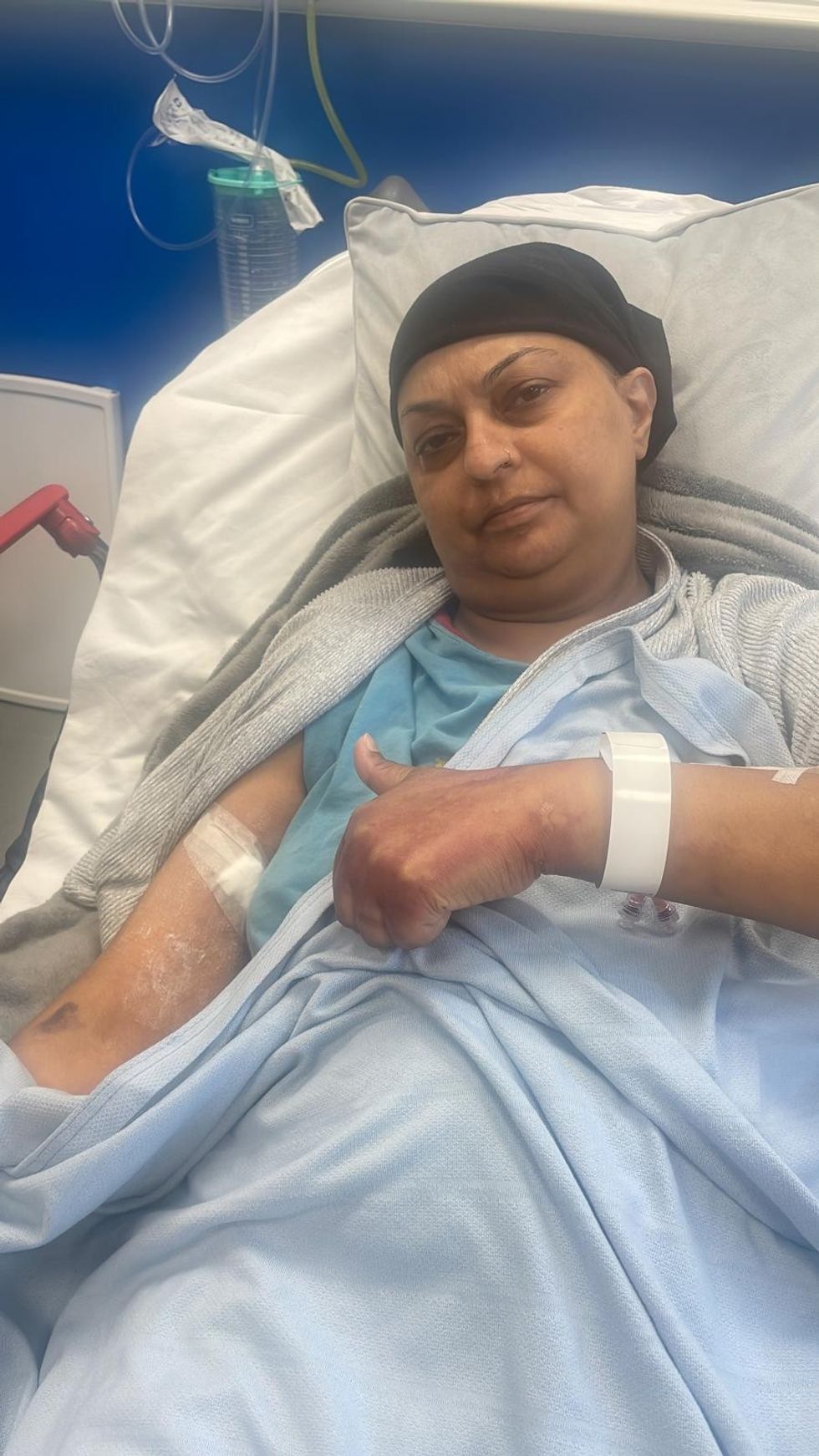LIFE was going great for Sbba Siddique until her world turned upside down in March 2022.
The devoted mother of three, wife, and host of a popular radio show was 53 years old when she received an ovarian cancer diagnosis. After surgeries and chemotherapy, she received an all clear and has subsequently become a campaigner for cancer charities to raise awareness of the deadly disease. The co-founder and director of London-based Asian Star radio shared her emotional journey of resilience from diagnosis to treatment and advocacy to normalise conversations about cancer with Eastern Eye.
“I was working full time running my own media and events company and leading a charity knitting group. In 2022 my world turned on its axis. Ovarian cancer symptoms can appear as something else. The symptoms I had didn’t seem cancerous. After 25 years of having periods coupled with cramps and aches, my symptoms seemed to be a part of life. As they became persistent and frequent, I visited my GP. I was told I was peri-menopausal and might have irritable bowel syndrome.

“Thankfully my dermatologist (who I had an appointment with to discuss my psoriasis) urged me to go back to the GP, when she noticed my stomach was distended and out of shape. Without her, who knows where I’d be.
“Cancer was the last thing on my mind. I had no idea what the CA125 blood test marker was, but it came back raised and within two days I was undergoing an ultrasound, which showed a growth on both ovaries. 10 days later, my diagnosis came. That moment, sat in the room, with my husband at my side hearing the words ‘stage 3 ovarian cancer’ is still etched in my head. The doctor’s mouth was moving, but I wasn’t hearing. As we got into the car all I could think was how was I going to tell my children. Together, we sat and cried.
“The traumatic treatment didn’t go as I’d hoped. I opted to have surgery followed by chemotherapy but after hours in the theatre, and horrendous hallucinations because of the morphine, all I had to show for it was 48 stiches. The cancer was still inside and had spread further than originally thought. I had a fight on my hands.
“I began intravenous chemotherapy and experienced every side effect possible, including sleepless nights, peripheral neuropathy, nausea, and debilitating fatigue. It felt like everything was failing. My hair had started falling out at that point. At the mid-way scan, the tumour was still too big to operate on, so we switched to oral chemotherapy. The side effects of this were unbearable, but I persevered.
“I was hospitalised on numerous occasions due to my body becoming exhausted. Thankfully at the next scan, I felt a huge relief as the surgeon said surgery could be possible.
“During the deepest and darkest times, I felt utterly broken both physically and mentally. There were times when all I wanted was the pain to stop and for it all to end. But my Muslim faith and the love around me instilled strength into my being. Prayers became a source of strength and helped me deal with the side effects from treatment. I couldn’t let any doubt or negativity seep in and had to believe the surgery was going to work. I had to let go of anxiety, fight and be strong.
“I entered a military style regime of sleeping well, eating properly and doing anything possible to make my surgery a success. I had to be the miracle patient. A big fear after diagnosis was not being heard, but every question I asked was answered and this had a calming effect.
“The anaesthetist was really reassuring before the operation, which also helped. My surgeon went into the operation hoping to remove 70 per cent of the cancer.
“Four days later, she appeared on my ward. She gave me a hug and told me I had given her a miracle. I was 100 per cent tumour free.
“Since coming out of surgery in spring 2023, I’ve been determined to use my experiences to make a positive change. We must ensure that every woman feels empowered about their health and that the taboo around gynecological health is dispelled.
Everyone must have the much needed support to get through diagnosis, treatment, and recovery. The conversation around gynae cancers needs to be far more open. I was at stage 3 before being diagnosed and know that if it wasn’t for being prompted, I would’ve left it.
“During treatment, I felt seen and heard by healthcare professionals, who really knew how to respect my heritage. But there was no one who looked like me and that was scary. So, in that regard we must increase visibility of ovarian cancer within the south Asian community. While it is great to have information leaflets in different languages, we need to do a lot more.
“South Asian women could be missing out on early stage diagnosis as they don’t know the signs or may be embarrassed to go to the GP.
“Cancer in the south Asian community remains a taboo subject, as are conversations around gynae health.
“Cancer has taught me patience, strength and positivity. Every day I get up and look forward to what the day will bring. Despite the long term effects of chemotherapy and its trauma, I want to feel all that happiness throughout my body.
“I want to empower women to have their own voice, make informed decisions and give them the best possible chance of surviving ovarian cancer. I hope that me speaking about my experience inspires change and helps raise awareness of the symptoms.”
www.macmillan.org.uk/asian-star-radio www.targetovariancancer.org.uk



